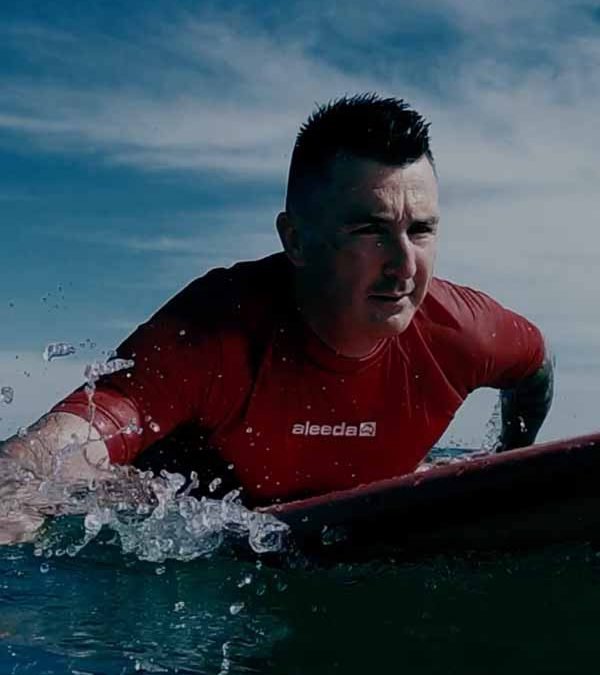One year into walking the beat for Victoria Police, Barry Randall’s life was almost stolen.
An attempt on his life in 1995 ended in a fatal police shooting.
Nightmares haunted the now sergeant as he battled insomnia and PTSD; a diagnosis that encouraged him to leave the country, and then return to the Mornington Peninsula where Randall could be closer to the beach.
Surfing soothed his soul.
Now, more than 25-years after the attempt on his life, Barry is leading a movement helping veterans and first responders tame their trauma through Operation Soul Surf.
“I’d had the idea for a while that if it worked for me, it could work for others,” explains Randall.
“It’s very engaging and that serves as a distraction to some of the things that might be playing on their minds.”
“For that two-hour period there’s a real separation from all the stresses that they might be going through.”
Randall founded his organisation between lockdowns in the middle of 2021.
Already, more than 50 serving and former firefighters, paramedics, police and defence force personnel have graduated from his four-week program.
“We like to try and focus on those that have been diagnosed with PTSD or have experienced some sort of trauma, but we’re also open to applicants who haven’t had a diagnosis but have had a career where they’ve been exposed to lots of different things,” he said.
“It’s essentially a learn to surf program — that incorporates the benefits of surf therapy — aimed at those that have had no surfing experience or very little experience perhaps maybe 10 or 15 years ago.”

“We think the program can teach a proactive approach through skills in the water… for when they do experience more, significant trauma.”
After 28 years in the force and spending time as a detective in Victoria’s Sexual Offences and Child-abuse Team, Randall knows surfing can help deal with stress and fatigue, but the science surrounding those benefits aren’t fully understood.
Thanks to a social media post, Operation Soul Surf is part of a global movement to cement the therapy in science, surveying surfers on behalf of California’s International Surf Therapy Organisation.
“It’s essentially collecting and collating data from the participants about how they felt prior to going for the lesson and then afterwards,” Randall explains.
“Then all of that data goes to I.S.T.O. in California and they collect that feedback from about 40 to 50 therapy programs around the world.”
“They’re building some fact based evidence around the benefits of therapy.”
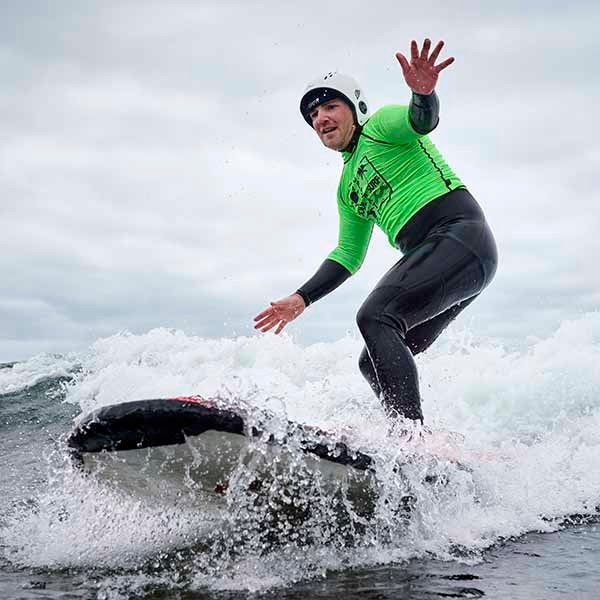
“I was very fortunate that they had seen something on social media and reached out to me to say that they didn’t have too many members from Australia involved.”
Randall surveys his surfers twice; before and after their two hour sessions at the picturesque Point Leo on Victoria’s Mornington Peninsula.
“It’s a whole body experience — and that’s one thing that the participants learn very quickly — it is very physical, particularly when you haven’t done it before.”
“It does engage all of the body and it takes a fair bit of concentration as well.”
“Each of those learners are paying attention to the surf coaches and the instruction, they’re watching the waves and the surf and trying to learn how to read the waves that are coming and they’re also taking in a lot of the natural beauty.”
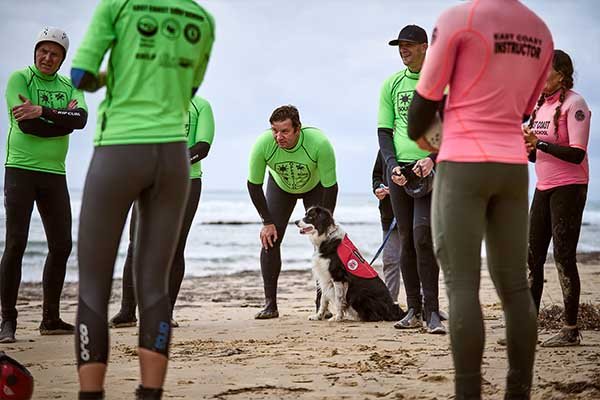
“They have an hour to an hour and a half in the water during the actual surfing lesson and then afterwards we all get together for lunch.”
“That’s an opportunity for them to debrief and not only chat about the session, but if they want to open up and talk about some of their experiences or work or trauma, they can do that in a very chilled kind of casual environment.”
“There’s no expectation, but I’ve seen it happen on multiple occasions.”
“They start to build that trust and friendship with new people, feel like they can talk about some of their issues because they know they’re chatting to people who have been through some similar experiences.”
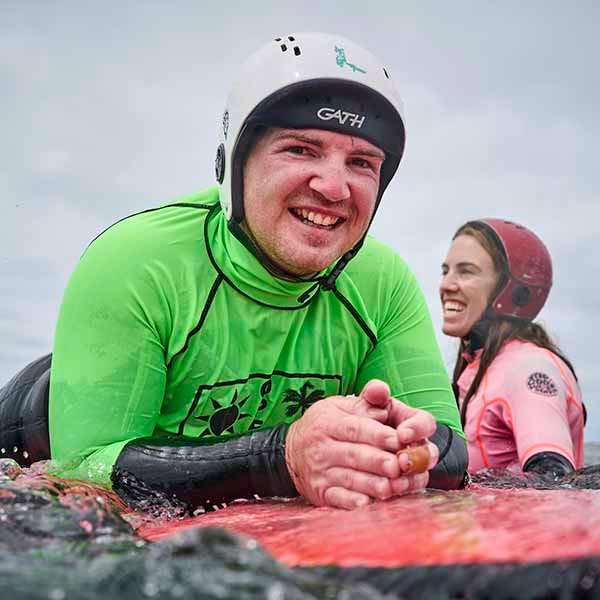
But Randall’s program hasn’t needed to go global to be recognised internationally.
Thanks to Operation Soul Surf, Randall has been nominated and named an LG Local Legend.
“Unbeknownst to me, two of the fellows that had been on the program who are Victorian Firefighters, they nominated me for one of the local legend awards with LG,” says Randall.
“I was completely unaware until, out of the blue one day, I had a phone call from LG; which I thought was a scam call to begin with!”
“It took a little bit of convincing for me to realise that it was very legit and I was quite blown away. Not only had I been nominated, which was not something I was chasing or expected, but the fact that LG had found what I was doing worthy of being recognised in an award.”
“I thought that was terrific.”
After so much success in such a short span of time, the real reward will be keeping his surfers engaged with the ocean, where they can heal like he has.
“We’ve had close to 20 of the 50 plus participants continue with surfing.”
“They’ve bought surfboards and wetsuits and they’ve included surfing as part of their lifestyle and it’s even followed on to a couple of them including the whole family members.”
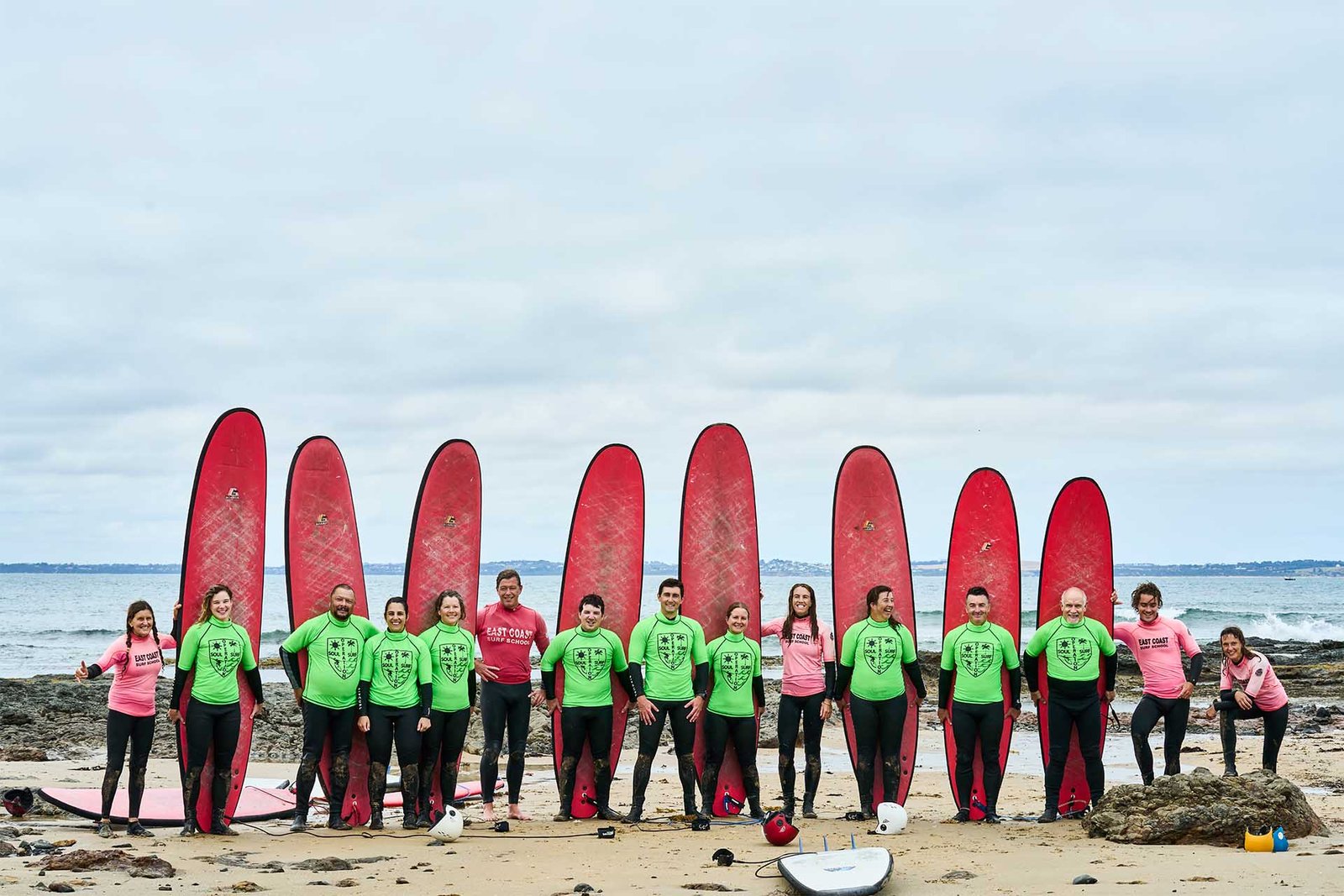
“We’ve got one ex-navy fella whose wife and two kids now all go out together and they found it quite an awesome bonding experience.”
“Just being in the ocean is a bit of a reset for the mind.”
“There’s definitely some therapeutic benefits just from the salt water in the ocean itself.
“I think combining those various things, it allows the participants to realise that there are other ways in which to manage stress and trauma, not necessarily to replace traditional techniques — a lot of our participants are on medication and they see a psychologist or a psychiatrist — it’s just another tool in your belt to consider.”

